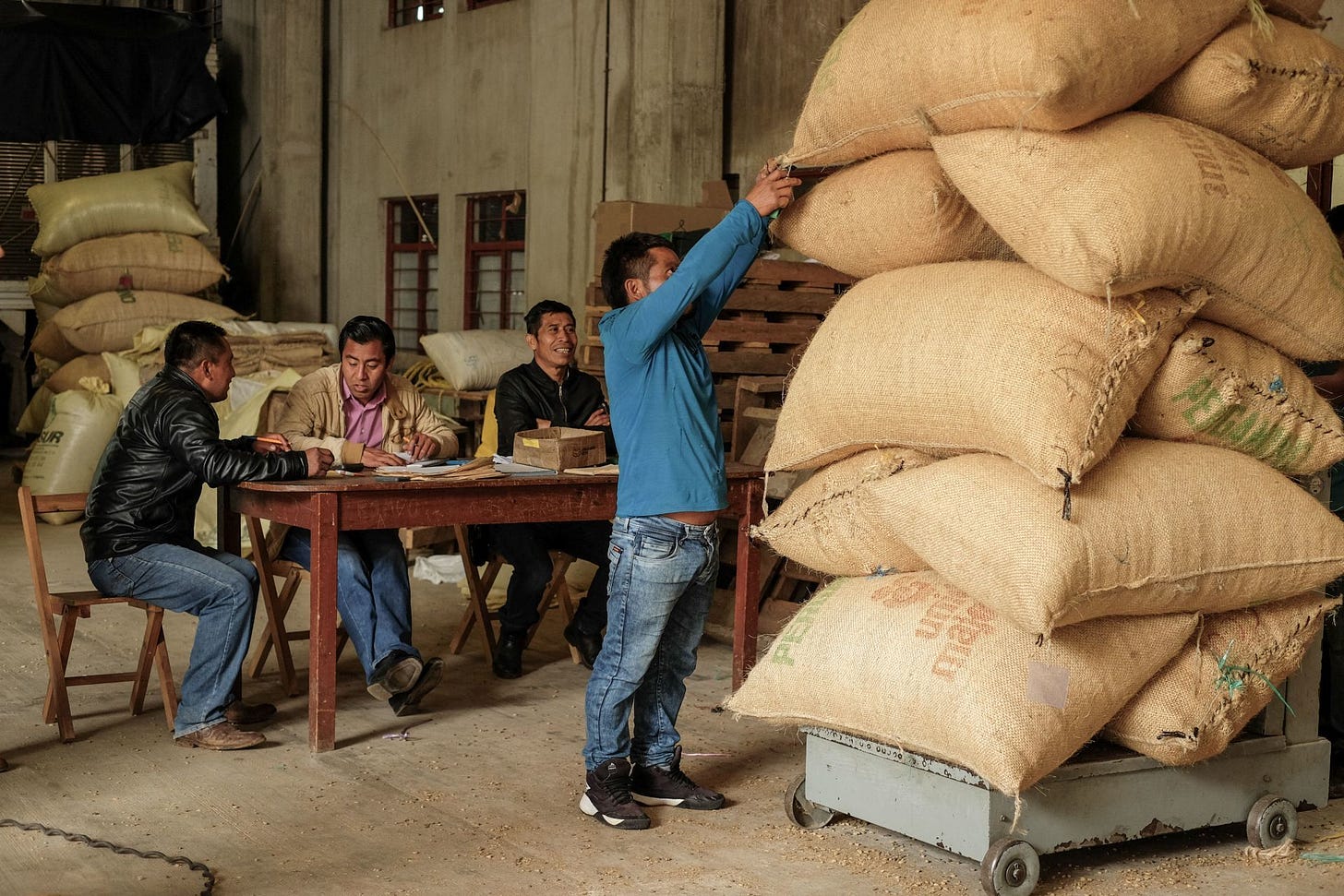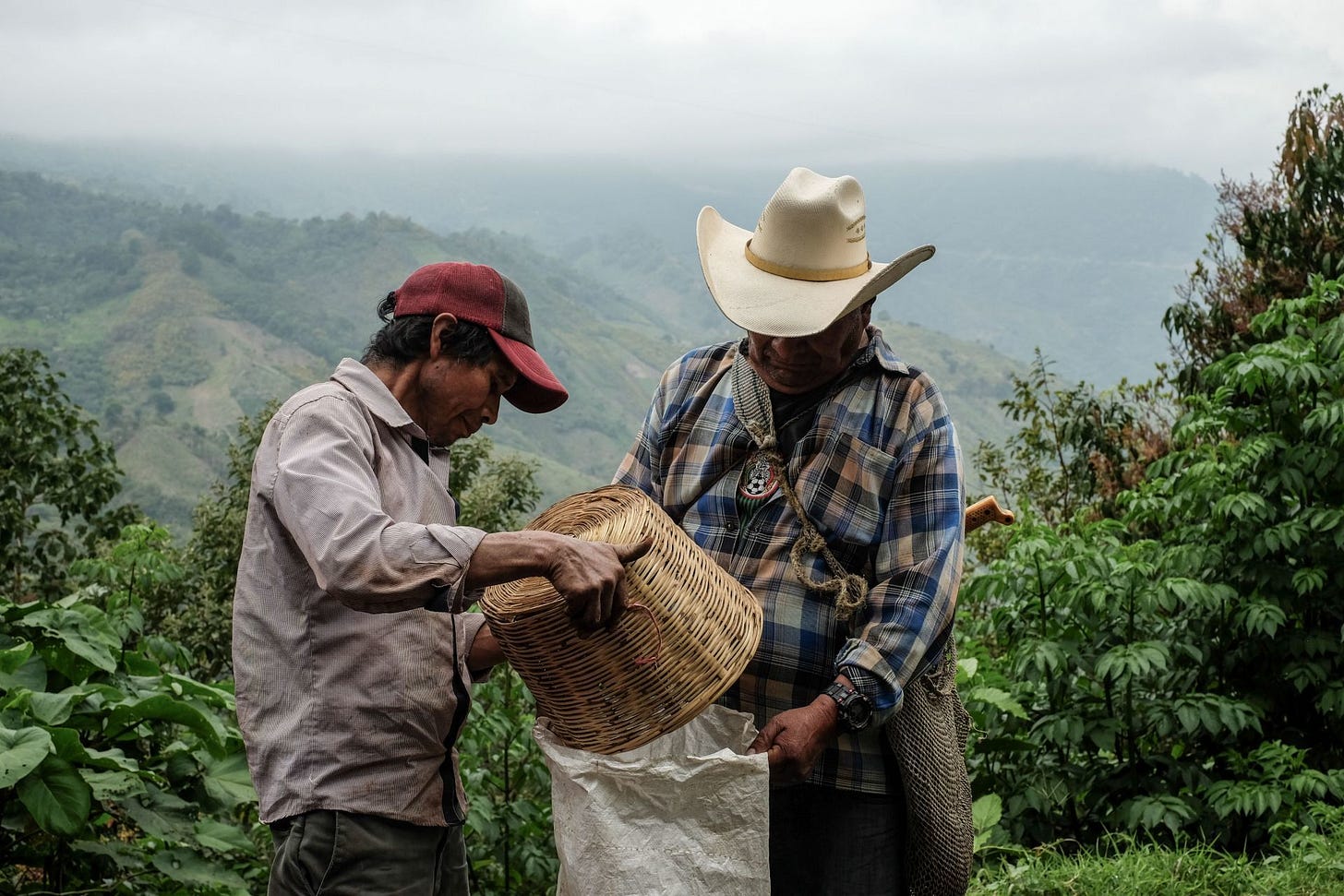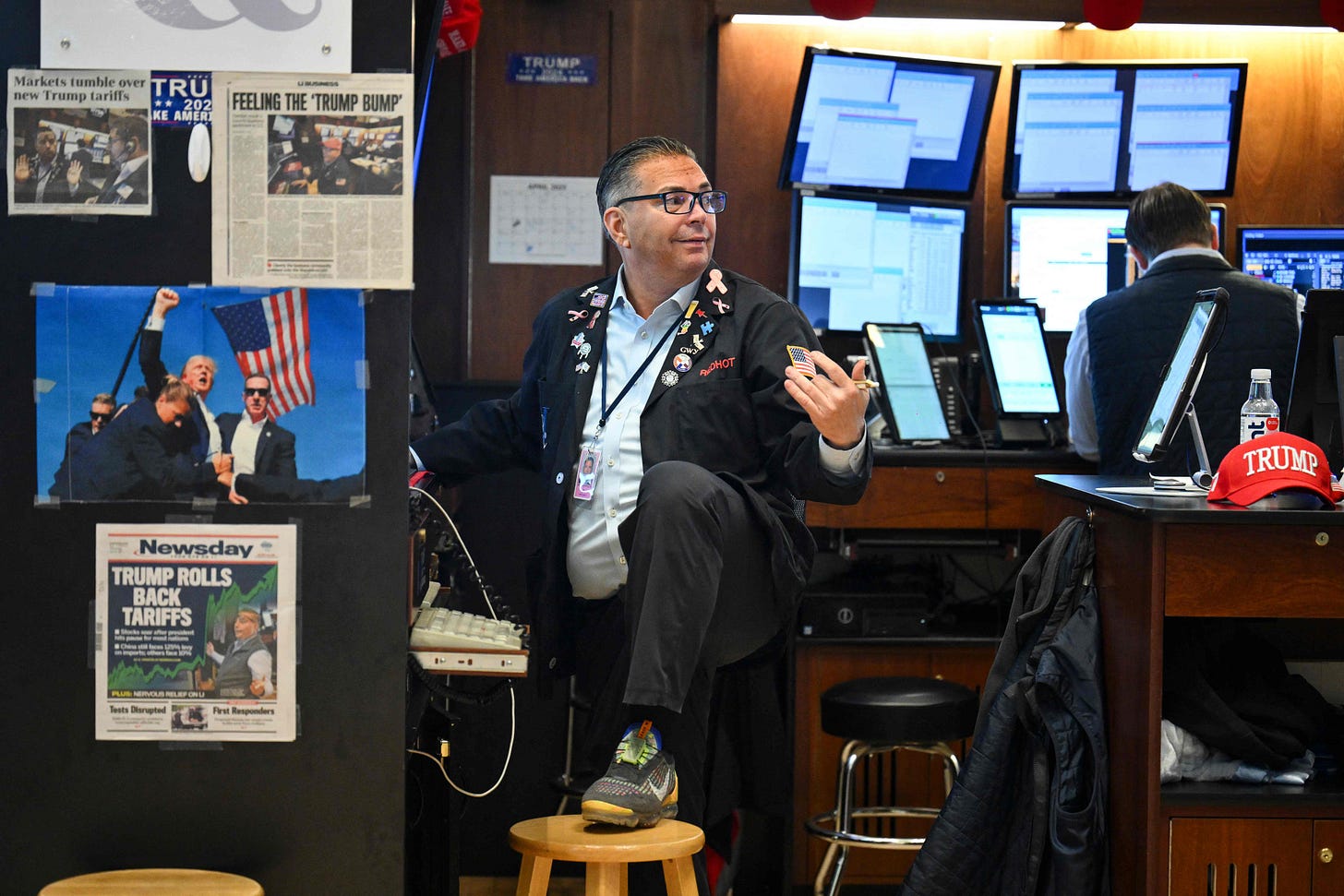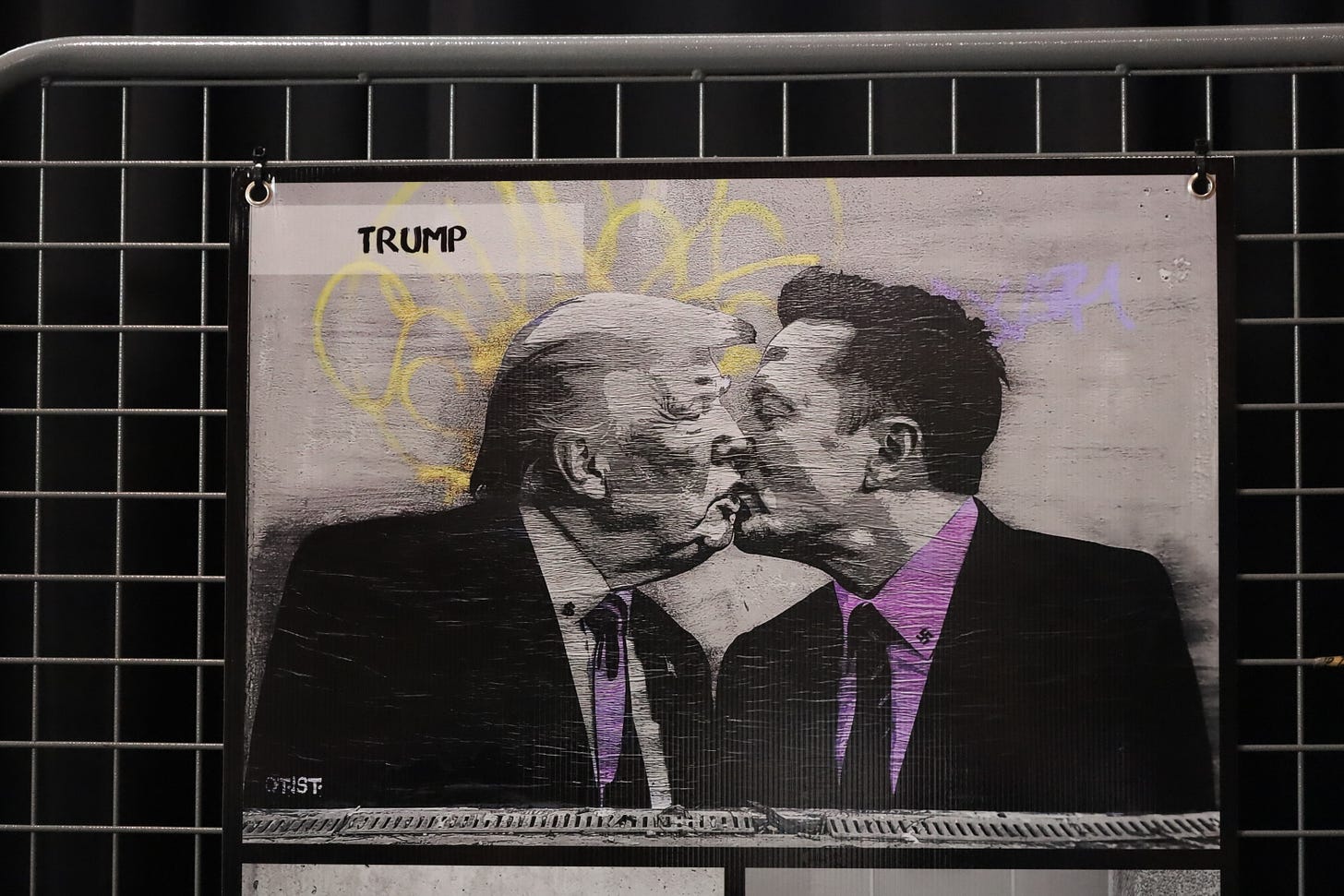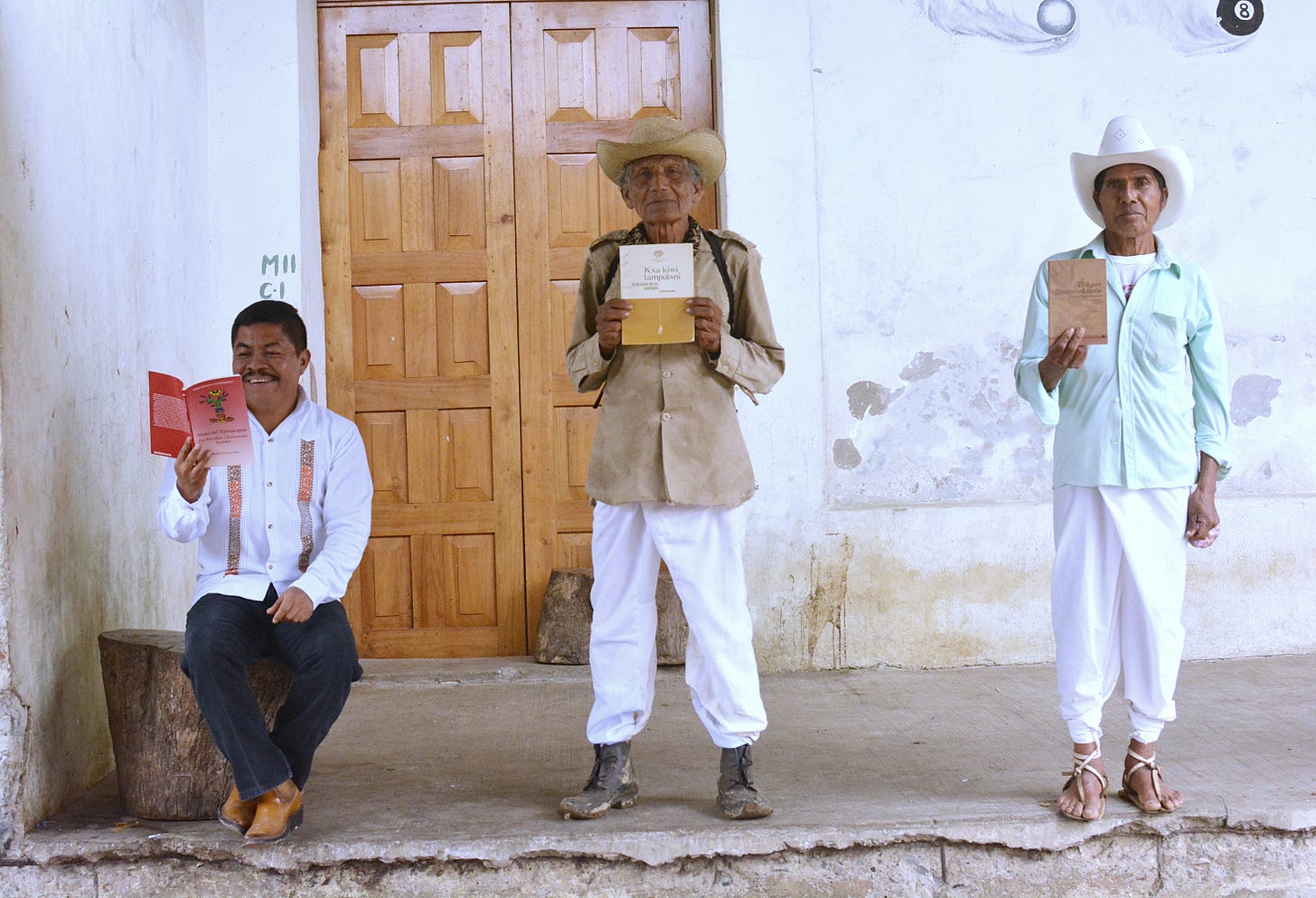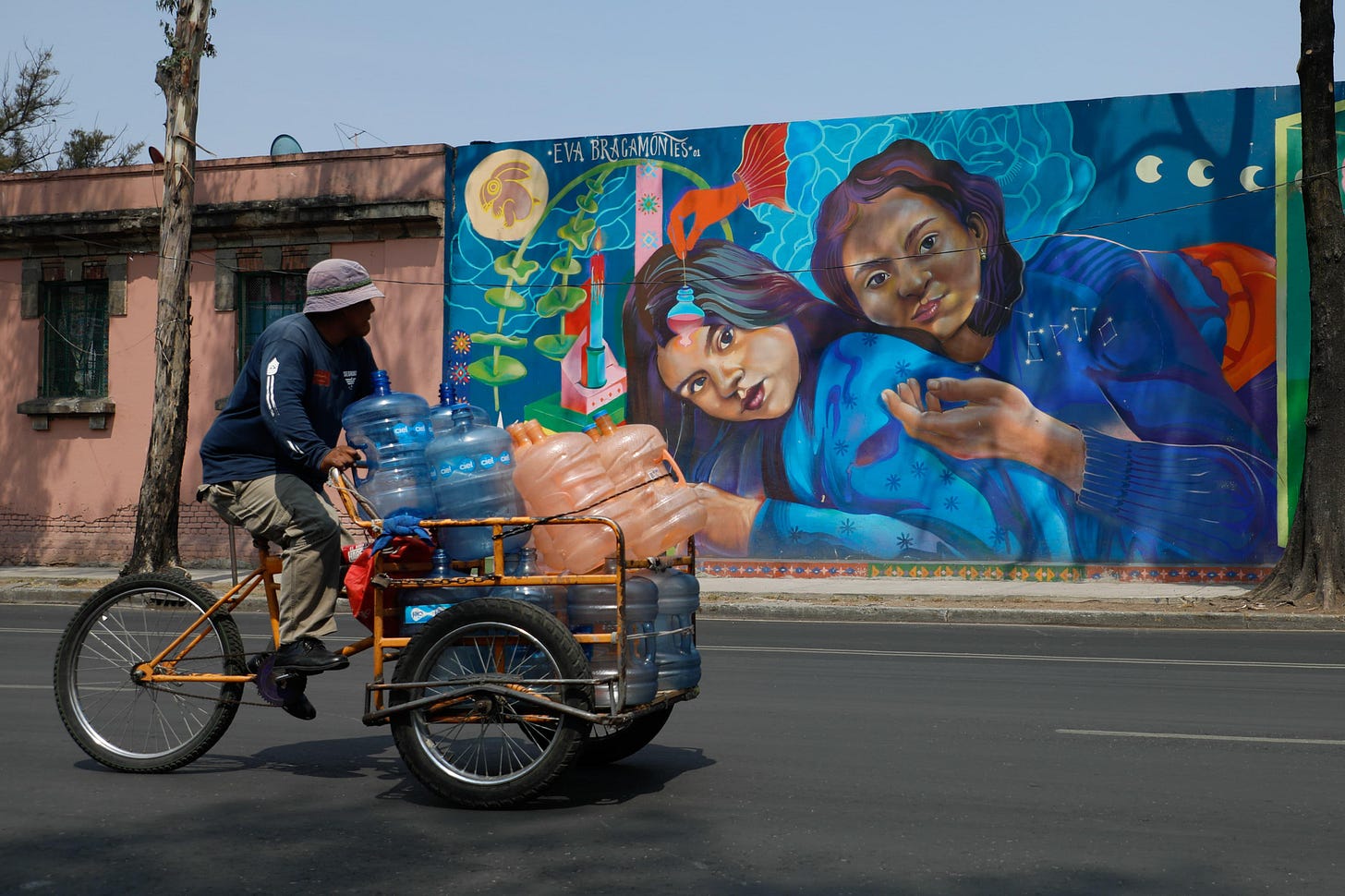02 May 25 | The Opportunities Created by Trump
Also in this edition: A tribute to Banksy in France. Joseph E. Stiglitz reveals what is the world's biggest tax haven. UAW: U.S. workers express solidarity with Mexican workers.
Lea La Jornada Internacional en español aquí.
Could chaos and cruelty be opportunities for change?
As a result of six years of the Morena government’s Fourth Transformation, Mexico has recorded the greatest reduction in poverty in Latin America. However, serious challenges remain in terms of violence, rural poverty, and the transformation of an economy still suffering the effects of neoliberalism — all under the shadow of Trump, which looms not only over Mexico but over the entire Global South.
For President Claudia Sheinbaum, a new World Bank report showing that Mexico had the greatest poverty reduction in the Latin America and Caribbean region between 2018 and 2023, is evidence that the Fourth Transformation policies of the Morena government are working. The president, however, downplayed forecasts that Mexico’s public debt will grow and reach its highest level in six years, and dismissed the need for a tax reform.
But not everyone agrees. The problem, writes Rolando Cordera Campos, is the lack of economic growth and jobs, regardless of the projections or percentages. Rather than getting caught up in numerical debates, he believes we should focus on finding paths that lead us out of the negative economic trajectory Mexico has been stuck on.
Marcos Roitman Rosenmann writes in La Jornada that most governments in the world have become defenders of market society. The consequences are clear. The planet is dying, and plutocracies are getting richer. Neoliberalism has won. Tariff wars sanctify Hayek and free trade agreements.
But in this context, it is also possible that Trump’s tariffs, economic warfare, cruelty, and racism could also create an opportunity for the Global South to design a more democratic reordering of the global economy—one centered on the majority, and addressing both the climate crisis and inequality. What role, ask several commentators, could Mexico, Brazil, and South Africa play in this new order?
“Trump is essentially nothing more than a thwarted colonial leader… The problem is that American power is already declining, and the era no longer lends itself to this type of brutal and unrestrained colonialism,” writes the French economist Thomas Piketty. In response, he calls on countries in the Global South to propose the establishment of a new social and environmental multilateralism to replace the now-defunct neoliberal multilateralism.
From within the United States, a team of experts who have developed proposals championed by independent Senator Bernie Sanders—and who are now advising the governments of Brazil, South Africa, and India—argue that governments and social movements in the Global South need to work together to develop their own industrial policies, focused more on long-term investments to create jobs, and tackle poverty and the climate crisis.
Analysts Tim Sahay and Maximiliano Vejares praised the Plan Mexico developed by President Claudia Sheinbaum’s administration. “Mexico has the foundation to emerge as a ‘green power.’ Its industrial base is deeply integrated into global high-tech supply chains in fields like medical imaging equipment, industrial robots, lithium batteries, and electric vehicles,” Vejares explained.
But they warn that for Mexico to seize these opportunities, it will need greater public investment, more government-led efforts to build supply chains for renewable industries, and a major focus on education to train workers for these green sectors.
Sahay, Vejares, and their team are collaborating with Mexico’s Ministries of Economy and Energy on the Mexico Plan, and they hope to continue working with the government and other sectors—including academia, labor unions, and civil society organizations—to foster dialogue around green industrial policies and share their international experience with Brazil, South Africa, India, and the United States.
The Quote
Mexico is nobody’s piñata.
-President Claudia Sheinbaum
In case you missed it
◻️ Tribute to an anti-establishment street artist. An exhibit in France features 280 works by Banksy and French graffiti artists who are developing tools for organizations fighting for a more just world. The collection has been touring cities for two years, and each show is organized in coordination with local groups that promote solidarity, aid, peace, justice, and grassroots art, among other principles, to honor the values Banksy stands for, according to organizers in Grenoble. More images here.
◻️ 18 years without a single maternal death. This year marks 18 years since Mexico City—formerly known as the Federal District—made history by legalizing abortion within the first 12 weeks of pregnancy. The law was accompanied by an institutional framework that allowed women from across the country to undergo the procedure safely, scientifically, with psychological support, and in an environment that fully respected their privacy and autonomy.
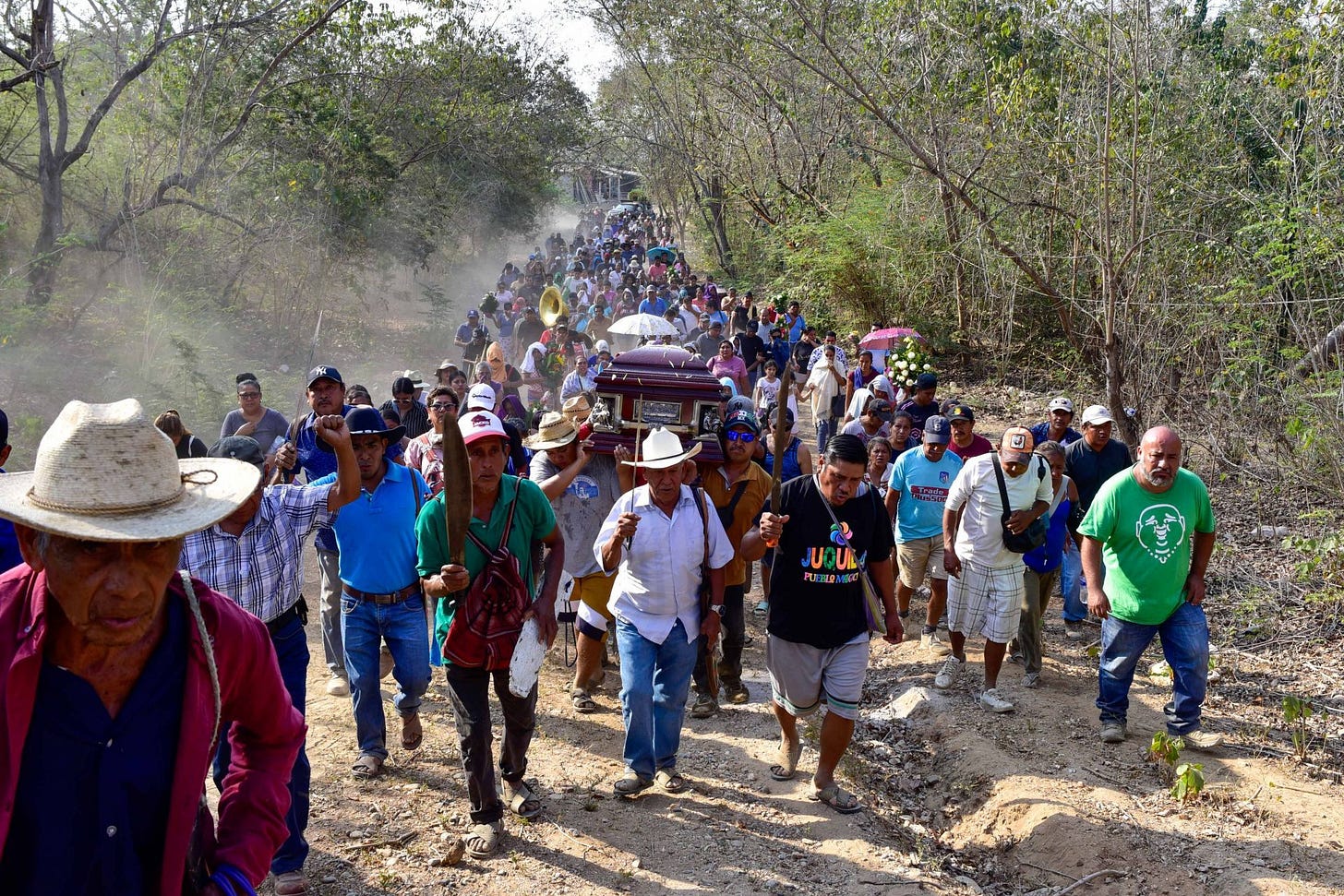
◻️ Mexico, fourth in the world in assassinations of environmental activists. Marco Antonio Suástegui Muñoz, a leader of the Council of Ejidos and Communities Opposing La Parota Dam in Guerrero, is the most recent environmental activist to be killed in Mexico. A total of 25 environmentalists and land defenders were murdered in 2024—20% more than the previous year. “What was the point of the heavy security operation during Holy Week if an attempt on Marco Antonio’s life happened right in the tourist zone?” asks Abel Barrera.
◻️ The cause of the Mexican workers is our cause. Shawn Fain, president of the United Auto Workers (UAW) in the United States, shared a message for Mexican auto industry workers in honor of May Day.
◻️ The world's biggest tax haven: the U.S. Economist and Nobel Prize winner Joseph E. Stiglitz explains how Donald Trump is rapidly turning the United States into the biggest tax haven in history. Nowhere is this more evident than in his embrace of cryptocurrencies.
◻️ Vietnam: growing in peace. A massive civic celebration is taking place in the Vietnamese capital to commemorate 50 years since the reunification of the North and the South, marked by the defeat of the once-considered-invincible U.S. military in Saigon on April 30, 1975.
◻️ “Let poetic voices rise”: Stella Calloni La Jornada’s correspondent in Argentina, Stella Calloni, was honored at the Buenos Aires Book Fair for her more than 60-year career.
◻️ “Indigenous peoples are more alive than ever.” Totonac writer Manuel Espinosa Sainos sees poetry as a form of resistance and a way to reclaim Indigenous languages—to say, “We’re here, we have not died”; it’s about making visible what was hidden for so long: our original cultures.
🎥 What We’re Watching
Greta Thunberg links solidarity with the Palestinian people to the fight for climate justice.



